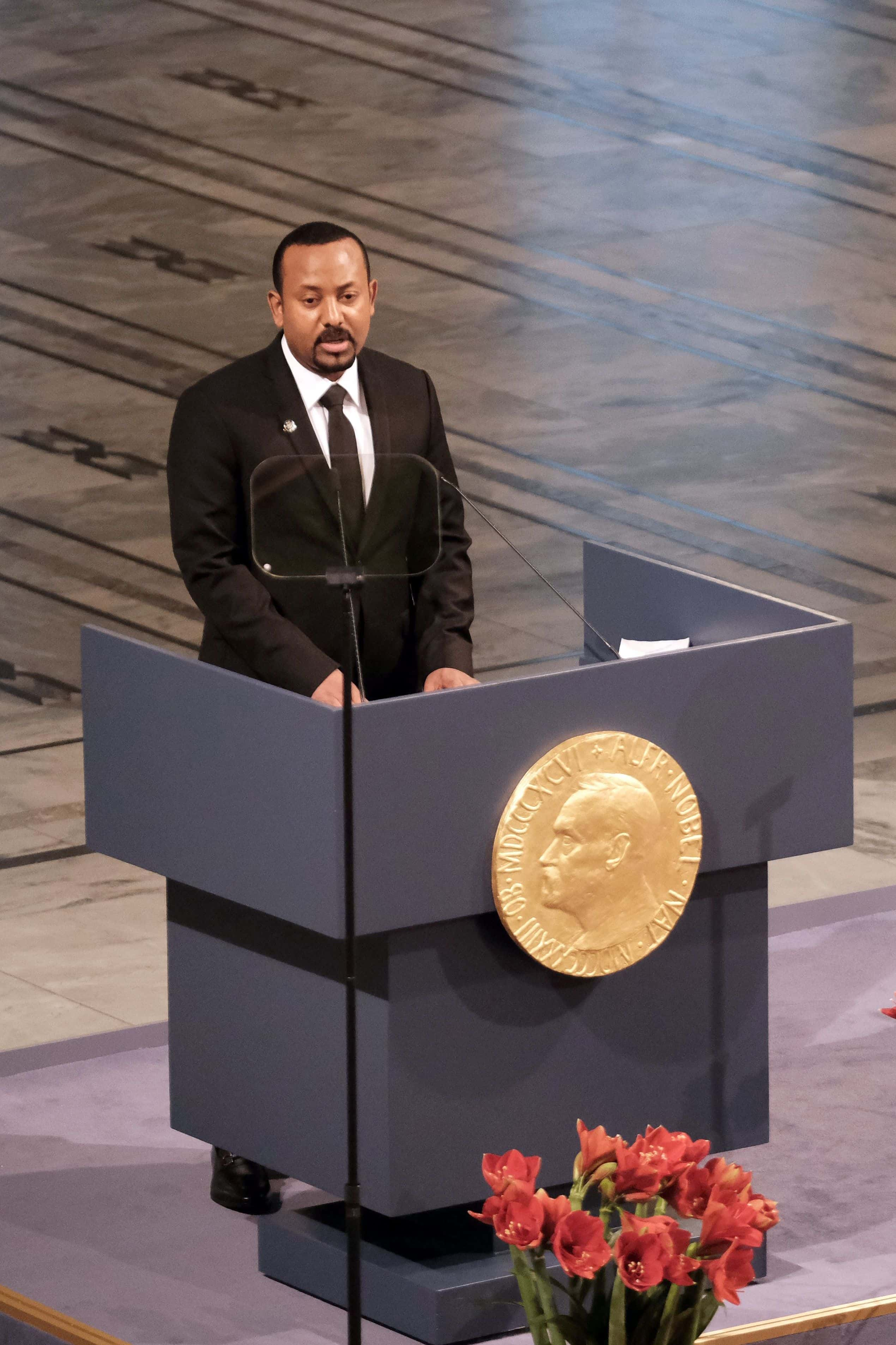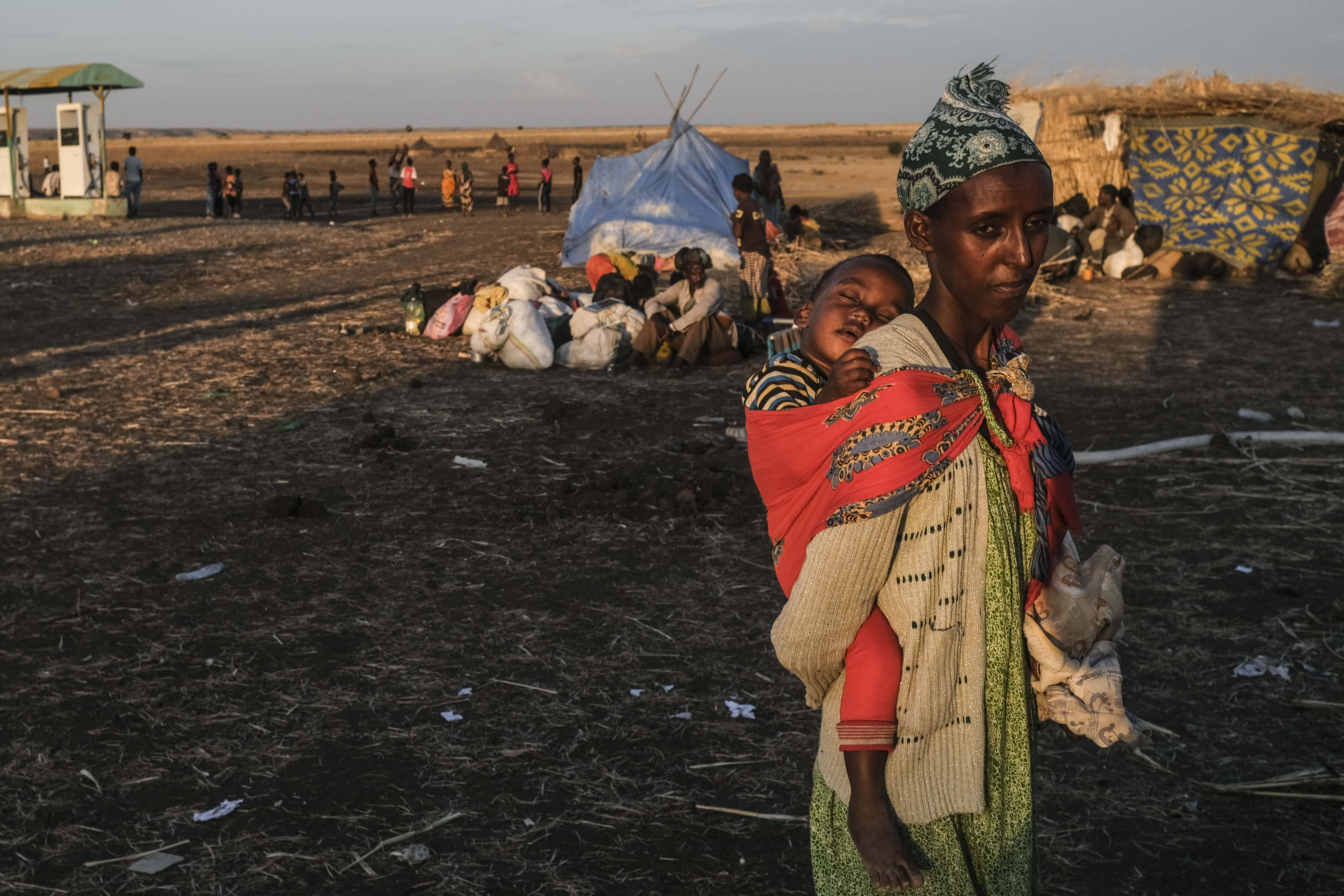Irob and Kunuma communities: Petition launched against Tigray genocide amid extreme danger of being wiped out

Omna Tigray, a nonprofit founded by a collective of Tigrayan professionals recently launched a Twitter campaign and a petition campaign in hope of garnering protection for the Irob and Kunuma communities which have been ravaged by a genocidal war in the region in Ethiopia.
Since November 2020, these communities have faced atrocities at the hands of Ethiopian, Eritrean and Amhara forces. Through this campaign, the non-profit aims to draw attention to the human rights violations taking place and ask for the UN to uphold the United Nations Declaration on the Rights of Indigenous Peoples.
RELATED ARTICLES
In a series of tweets put out by Omna Tigray, the nonprofit explains the current situation of the people in the region. "Beginning now, join us in a Twitter and Petition campaign calling for the protection of the Irob and Kunama communities in Tigray. Hashtags: #IrobMassacre #KunamaStarvation #TigrayGenocide Tweets are available: https://omnatigray.org/irob-kunama/ Sign our petition: https://omnatigray.org/protect-the-irob-and-kunama/" said a tweet.
"As a minority within a minority, the Irob + Kunama have seen their human rights rapidly deteriorate as the Abiy gov't came into office. After months of active genocide + occupation by Ethiopian and Eritrean forces and Amhara militias, it is unclear how many Irob + Kunama remain," another read.
The thread continued, "The Irob community is facing back-to-back violent occupations by Eritrean troops. During the 1998-2000 Eritrean-Ethiopian war, Eritrean armed forces subjugated civilians in Irob to war crimes + crimes against humanity akin to those occurring today as part of the #TigrayGenocide."
"The Kunama people depend on farming for their livelihood. The deliberate looting of livestocks, burning of villages, and farming equipment have left them without food for over 5 months, and they are currently facing mass starvation. #KunamaStarvation #TigrayGenocide," it added.
"In addition to the overall call for removal of Eritrean troops, unhindered humanitarian access and UN-led and UN-only independent investigations across all of Tigray, we are calling on the @UN to uphold the United Nations Declaration on the Rights of Indigenous Peoples. @UN_HRC."
The non-profit urged to, "Join our Twitter and Petition campaign calling upon the UN to place protection on the Irob and Kunama communities, preventing extinction and preserving their respective languages, cultures, and heritage. Tweets: https://omnatigray.org/irob-kunama/ Petition: https://omnatigray.org/protect-the-irob-and-kunama/"
"'The north is dying,' said a man from Irob who reached Mekelle last month. 'I strongly believe there is a campaign to target the people. Every public and private institution is looted.' - @APNews, Feb. 11, 2021."
Beginning now, join us in a Twitter and Petition campaign calling for the protection of the Irob and Kunama communities in Tigray.
— Omna Tigray (@OmnaTigray) April 10, 2021
Hashtags: #IrobMassacre #KunamaStarvation #TigrayGenocide
Tweets are available: https://t.co/ndtKEYIA8L
Sign our petition: https://t.co/lYCIkOXTfR pic.twitter.com/Nfiyki0D16
The Irob community is facing back-to-back violent occupations by Eritrean troops. During the 1998-2000 Eritrean-Ethiopian war, Eritrean armed forces subjugated civilians in Irob to war crimes + crimes against humanity akin to those occurring today as part of the #TigrayGenocide. pic.twitter.com/WH5lsMKviR
— Omna Tigray (@OmnaTigray) April 10, 2021
In addition to the overall call for removal of Eritrean troops, unhindered humanitarian access and UN-led and UN-only independent investigations across all of Tigray, we are calling on the @UN to uphold the United Nations Declaration on the Rights of Indigenous Peoples. @UN_HRC pic.twitter.com/1JcRFWmmjt
— Omna Tigray (@OmnaTigray) April 10, 2021
Twitter handles to use shared below.
— Omna Tigray (@OmnaTigray) April 10, 2021
Hashtags: #IrobMassacre #KunamaStarvation #TigrayGenocide pic.twitter.com/LwGiY7DtHP
Additional resources shared below. pic.twitter.com/P6EK9cb1FD
— Omna Tigray (@OmnaTigray) April 10, 2021
What led to the conflict in Tigray?
As reported by the New York Times, Abiy Ahmed Ali, the Prime Minister of the Federal Democratic Republic of Ethiopia wanted to unify the country by increasing the federal government's power. This would reportedly result in the minimization of autonomous regional governments -- a change that was openly resisted by Tigray, seeing that the region did not support the idea of centralization, leading to a clash between the Tigray People's Liberation Front (TPLF) and Abiy Ahmed.

The situation got progressively worse when Tigray openly defied the federal government and conducted regional parliamentary elections which had been postponed in other parts of Ethiopia on account of Covid-19.
In retaliation, Abiy Ahmed's government voted to cut funding in the region in October of 2020. With tensions running high, the situation took a turn for the worse when TPLF security forces attacked a military base in the region. The conflict resulted in 1,000 civilian deaths and several misplaced refugees.
The Abiy Ahmed government was swift to declare a six-month state of emergency in Tigray. Abiy Ahmed deployed militia fighters from Amhara. Mekelle, the capital of the region was seized by the military on November 28 and with it came the news that Abiy Ahmed had "completed and ceased the military operations."

However, the conflict between the TPLF and the military continued right through February. Eritrea, which shares a border with Ethiopia and was in conflict with them not too long ago until Abiy Ahmed came into power has sided with the Ethiopian central government and has sent troops into Tigray, along with artillery being fired as well.
TPLF retaliated by firing rockets at major airports in Eritrea and Ethiopia's Amhara region. While the central government denies Eritrea's involvement in this war, some of the worst human rights violations have reportedly come from Eritrean soldiers.
For smaller ethnic groups like Irob and Kunama, the threat of being eliminated is large at hand. In the city of Humera, now overrun by Amhara authorities, Tigrayan identity is being destroyed.
As reported by AP News, Seid Mussa Omar, a nurse, had his original ID card with his Tigrayan details burned and replaced with a new Amharic one, complete with an Amhara stamp and all traces of Tigray whipped clean. "I kept it to show the world," Omar said. He also mentioned that out of 400 Tigrayans who worked with him, only 10 remain. The rest were either killed or fled. “This is genocide … Their aim is to erase Tigray.”
As reported by The Guardian, nearly 2,000 people have been killed over the 150 massacres that have taken place in the region.










